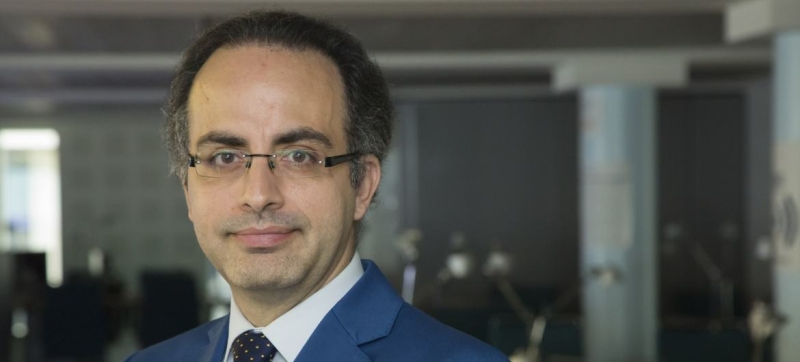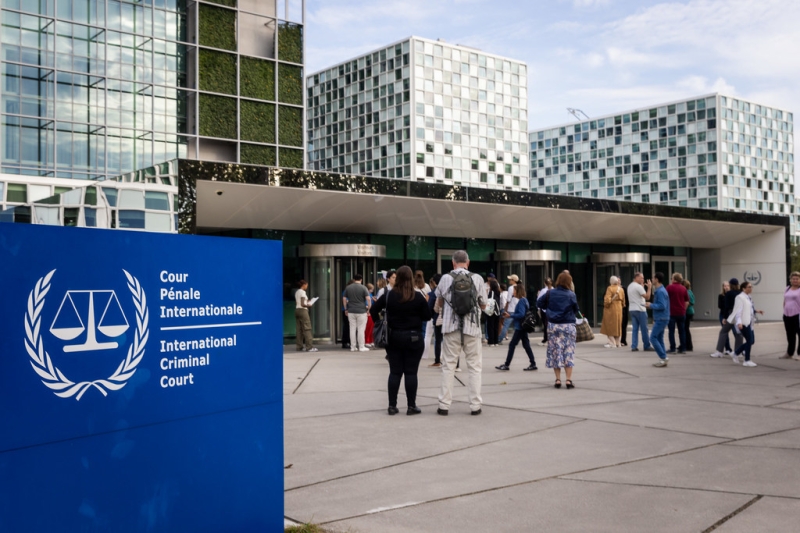
ICC Spokesman and Head of Communications Fadi El-Abdallah. INTERVIEW | ICC Arrest Warrants for Israeli and Hamas Leaders: Legal Framework and Next Steps International Law
The International Criminal Court (ICC) has issued arrest warrants for Israeli Prime Minister Benjamin Netanyahu and former Defense Minister Yoav Galant, as well as Hamas commander Mohammed Deif, charging them with war crimes and crimes against humanity. ICC spokesman Fadi El-Abdallah spoke to UN News about the investigation’s progress, as well as the cooperation and obligations of states parties to the Rome Statute, the 1998 treaty that established the court.
Fadi El-Abdallah: The issuance of an arrest warrant means that the judges have found sufficient evidence to establish reasonable grounds to believe that the suspect has committed crimes within the jurisdiction of the ICC. This is only the first step in the preliminary stage of the case and does not constitute a sentence. A sentence can only be rendered after a full trial. At this stage, the judges consider that the evidence presented by the prosecutor creates a reasonable ground, which requires hearing the defense’s position in the case.
The next step after issuing an arrest warrant is to secure cooperation from states. States that are parties to the Rome Statute – in this case Palestine – are obliged to cooperate with the ICC. States that are not parties are not obliged to do so, but may voluntarily choose to cooperate.
There are no trials in absentia at the ICC. The case will remain at the preliminary stage until the suspects appear voluntarily or are arrested and brought before the Court.
UN News: How many countries are party to the Rome Statute? And what does their obligation to cooperate with the Court mean in practice?
Fadi El-Abdallah: There are currently 124 states parties, and there will soon be 125. The legal basis for cooperation was laid down when the Rome Statute was negotiated in 1998. It gives the Court the ability to request cooperation on various issues, including arrest warrants. There are also many other decisions that require cooperation from states for their implementation. So this is a channel through which the Court can request cooperation. If states feel that certain issues need to be discussed with the judges, there is also the possibility to do so. However, the final decision on this issue is made by the judges.
UN News: The Court complements national legal systems and there is a view that Israel has the capacity to prosecute serious crimes. Why did the Court not leave this to the Israeli national judicial system??
Fadi El-Abdallah: The ICC operates on the principle of complementarity, which means that the primary responsibility lies with national judicial systems. However, if investigations or trials are absent or if they are not genuine, the Court is obliged to conduct investigations and trials subject to certain conditions.
Read also:
Rules of War: What You Need to Know About International Humanitarian Law?
This means that it is not enough to simply have a legal system – it must be demonstrated that that system is actively dealing with crimes or alleged crimes that fall within the jurisdiction of the ICC.
As indicated in the statements of the Prosecutor and the judges, the decision does not preclude the possibility of future challenges to either jurisdiction or admissibility, including on the basis of the principle of complementarity. For the principle of complementarity to apply, it must be shown that genuine investigations are being conducted into the same persons and the same alleged acts that are brought before the ICC. To do this, the Court must be provided with very specific information. The judges can then decide whether to continue or terminate the ICC proceedings.
Both the State concerned and the suspect may apply to have the proceedings stayed if there is evidence that genuine and serious proceedings are ongoing at the national level on the same charges.
UN News Service: How the judges are responding to threats of sanctions against the Court over this case?
Fadi El-Abdallah: The judges are obliged to follow the law. The ICC is a court with a mandate given to it by the Assembly of States Parties. We cannot take into account the political implications of decisions, only the elements of evidence and the applicable rules. We hope for the support of the States Parties that have given the Court this mandate.

ICC Headquarters in The Hague, Netherlands.
UN News Service: What usually happens after suspects are arrested?
Fadi El-Abdallah: If a person is arrested and transferred to the ICC, they are held in a detention centre in the Netherlands pending further proceedings. The first hearing is a so-called preliminary or initial hearing, where they are tested to see what language the person understands and speaks so that they can follow the case. If they have no financial means, they will be assigned a defence team, the costs of which will be covered by the ICC through its judicial or legal assistance programme. Then there is a confirmation hearing, where judges decide whether they believe the evidence presented by the prosecutor, after hearing the defence, is sufficient to allow the case to proceed to trial on each charge. This is how the case moves from the preliminary stage to the trial stage.
Then comes the trial itself, which is basically like a normal trial. Both sides, the defense and the prosecutor, call witnesses and present evidence. There is also a representative of the victims, who has the right to be present at the judges’ hearings, to express opinions and make comments on behalf of the victims. The judges then decide on guilt or innocence, and if the person is found guilty, they also impose a sentence. Of course, this decision can be appealed to the ICC Appeals Chamber, the Court’s highest court, which consists of five judges, distinct from the three judges of the Pre-Trial Chamber and the three judges at the trial stage.
UN News Service: Some believe that the likelihood of these individuals being arrested and handed over to the Court is low or non-existent. However, what is the significance of this step by the Court, despite all the other factors?
Fadi El-Abdallah: I think there are several principles here that we must protect. The first is the application of the law. The judges made their decision based on the evidence and the legal rules as they interpreted them. As I said, this does not exclude future challenges. We are at a preliminary stage. The judges indicated that the arrest warrants are confidential, but they decided to make some elements public because they noticed that some of the acts indicated as alleged crimes may still be occurring.
It is also important to emphasize the steps of justice for the families of the victims and for the victims themselves. It is important that people believe that the law is on their side and will protect them to the best of its ability. It is important that people believe that justice will prevail, because otherwise, what do we leave them with but the choice to continue the cycle of violence and revenge? It is important to break this cycle, and this can only be done through the legal justice system.
